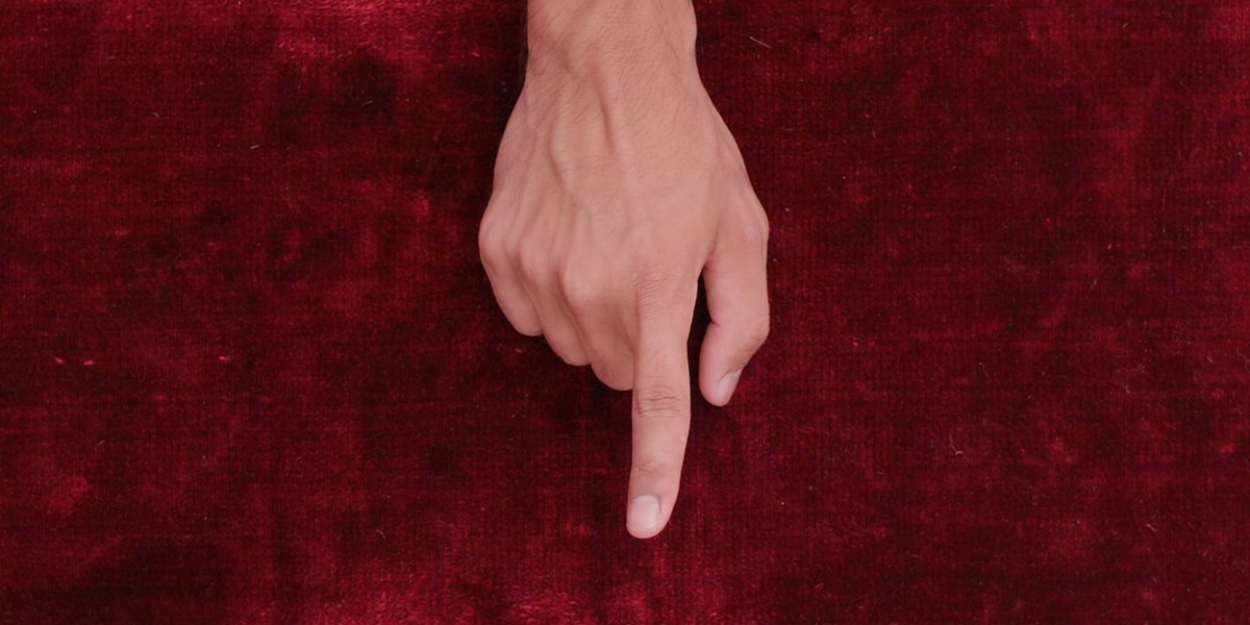Asian American Arts Alliance Will Host 'Devoted: Religion In Asian American Art' Exhibition
The exhibit opens this May.

Asian American Arts Alliance will partner with EFA Project Space, a program of The Elizabeth Foundation for the Arts, to present Devoted: Religion in Asian American Art, a group exhibition on theological influences in work by Zain Alam, Shelly Bahl, Baseera Khan, Dew Kim, Heesoo Kwon, and Sunnie Liu. Whether practicing or non-practicing, the featured artists draw upon tensions arising from making work as Asian Americans in the context of the United States as a de facto Christian nation.
Sunnie Liu's installation 施洗 (To Baptize), 2022, recalls their family's indoctrination within the Southern Baptist church, a process that shares eerie parallels with their immigration from China and broader histories of Western colonization. Their baptism robes hang like ghostly scrim over wash bins filled with liquids that evoke allegiances to empire, capitalism, and Christianity: black tea, Dr. Pepper, and wine. The figures face TVs playing a recorded performance in which Liu reenacts a baptism/naturalization of their own design, baptizing themself repeatedly and building a sacred domestic altar.
For their ongoing Law of Antiquities series, Baseera Khan photographed themself as close as possible to a selection of objects from the Brooklyn Museum's Arts of the Islamic World collection. The absurdity of the resulting scenes, such as a gloved conservator holding a hair comb barely an inch from Khan's hair, illuminate the power dynamics—as well as potential violence—within acts of preservation or care.
Dew Kim's pair of wall sculptures Till I Know What Love Is 01 & 02, 2023, depict arrows piercing human nipples cast in silicone. Typically seen being wielded by biblical angels, here, these arrows materialize a taboo, homoerotic sensation familiar to Kim's time spent in congregation envisioning bondage to a heavenly father, especially with great bodily harm or sacrifice.
A new work from Shelly Bahl's Songs of Lament series draws upon the artist's personal loss after a prior iteration was destroyed during a studio break-in. This reincarnation memorializes the lost artwork, in addition to reflecting upon the fates of religious iconography more broadly, in which consumer culture transmutates traditional forms. Black wax candles cast in the imagined forms of devadasis (ritual dancing girls) who resided in medieval Hindu temple complexes are arranged in an abstract pattern. They are meant to function as a Rorschach test, suggesting that images of devotion can shift meaning across cultural contexts.
Heesoo Kwon's A Ritual for Metamorphosis 탈피를 위한 의식, 2019, is created from family videos that were filmed by her father. Quotidian scenes like her parent's traditional Catholic wedding and home cooked meals show evidence of her mother's gendered subservience in a patriarchal household. This realization led Kwon to create “Leymusoom,” a fictional feminist religion whose name is derived from the Korean word for asexual (무성별). The religion's snake goddess, Leymusoom, and Kwon's avatar for herself are inserted into the tapes as rebellious spirits and spiritual guardians of her family's matriarchs in the found footage.
Finally, Meter & Light: Day, 2024, by Zain Alam is a three-channel audiovisual installation enacting in miniature the interlocking rhythms of time in Muslim life: breath, utterance, daily prayer, and more. The work provides an opportunity to consider Islamic sound and visuality as distinctive, melodic, contemporary, and a challenge to values of supreme authority over individual human perception.
Though by no means comprehensive in scope, Devoted presents potential facets of religious influence, whether it be divine revelation, challenging dominant theological claims, or simply pious commitment to one's craft. By following the link between religion and Asian American identity, the exhibition confronts myths of the East as inherently more mystical than the rational West (as voiced in criticisms by Palestinian scholar Edward Said). They also refute the vision of so-called Orientals as “heathens” in need of rescue—as Kathryn Gin Lum has described perceptions of non-Christian immigrants in the US, alongside Indigenous and enslaved Black peoples—that has continued since the nation's founding. Religious belief, then, plays a central yet under-acknowledged role in racial othering, fomenting some of the most urgent political tensions today and forming a common link of inquiry between the works on view.
Events
Opening reception: Thursday, May 9, 2024, 6–8pm
Artist-led walkthrough: Wednesday, May 15, 11am–12:30pm
May Town Hall: Sanctuary: Tuesday, May 21, 6:30–8:15pm
Portfolio in Practice: Tuesday, June 4, 6–8:30 pm
Comments
Videos

